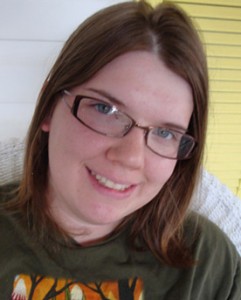Physics opportunities pave way for Collins’ dream job in nuclear power
Sarah Collins ’07 became interested in nuclear energy in the 8th grade, and was thrilled to land a position at a nuclear power plant immediately after college. She is currently a Non-licensed Nuclear Reactor Operator at the Oconee Nuclear Station in Seneca, South Carolina.

Her time is spent monitoring and adjusting various plant equipment outside the control room, including valves, pumps, and circuit breakers. She says the position required about seven months of intensive training, a qualification program, and ongoing classwork during two out of every ten weeks. She hopes to begin training by the end of 2009 to become licensed for control room work.
Collins credits the Cornell Physics Department for “developing the building blocks needed to enter the energy field,” and says the block plan prepared her to quickly learn the inner workings of the nuclear reactor and cooling systems, which requires understanding of electromagnetic theory, thermodynamics and fluid dynamics.
“My Cornell experience gives me an edge in the job market, especially when explaining to a potential employer that I successfully passed upper level courses in 3 and 1/2 weeks,” she says. “The Physics Department also let me participate in a self-guided research project on organic solar cells which helped to foster a sense of independent thinking and decision making along with a hands-on approach to concepts discussed in previous classes.”
Collins also took advantage of the block plan’s flexibility by participating in an externship program during her senior year. She spent time in the University of Wisconsin Nuclear Engineering Department and at Argonne National Laboratory’s Yucca Mountain Licensing Group and says the experiences “clinched my desire to enter the field.”
“The Physics Department was ideal for me,” she adds, “because of the small class sizes and one-on-one time available with the professors. With fewer students in the classroom, we learned how to work through problems together and because the professor was only teaching one class it was easy to walk down the hall for questions and discussion.”



